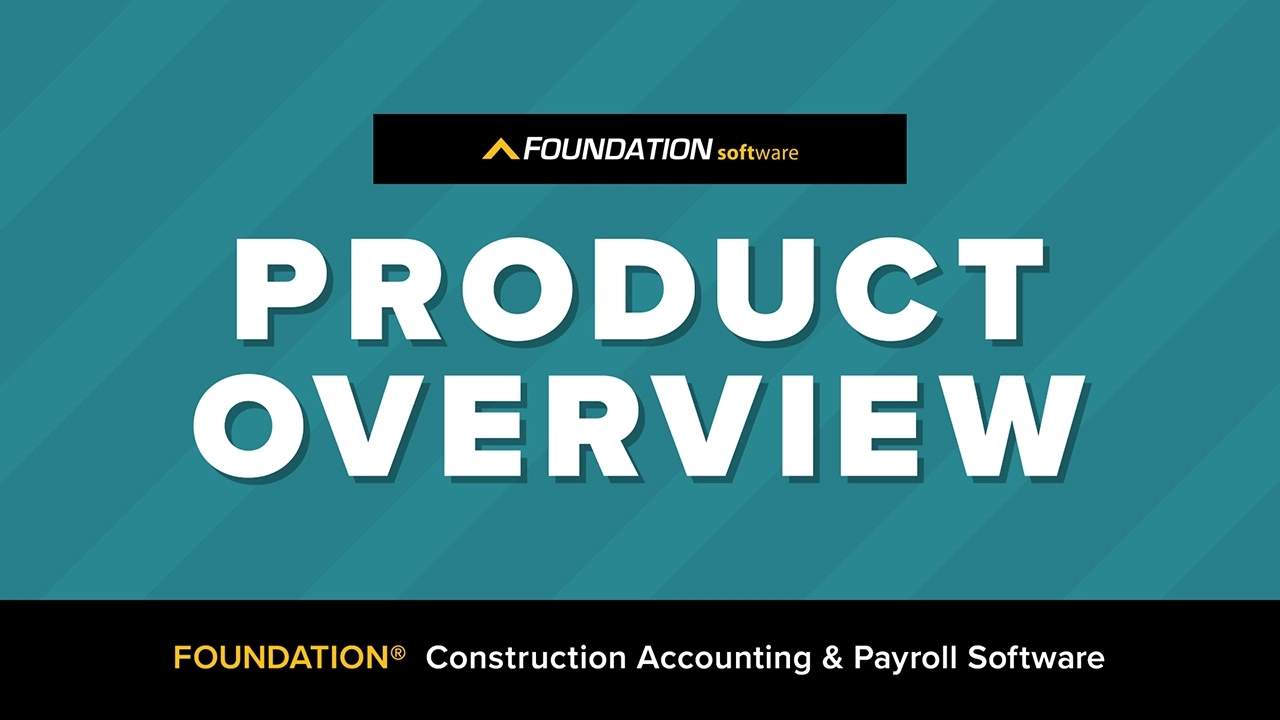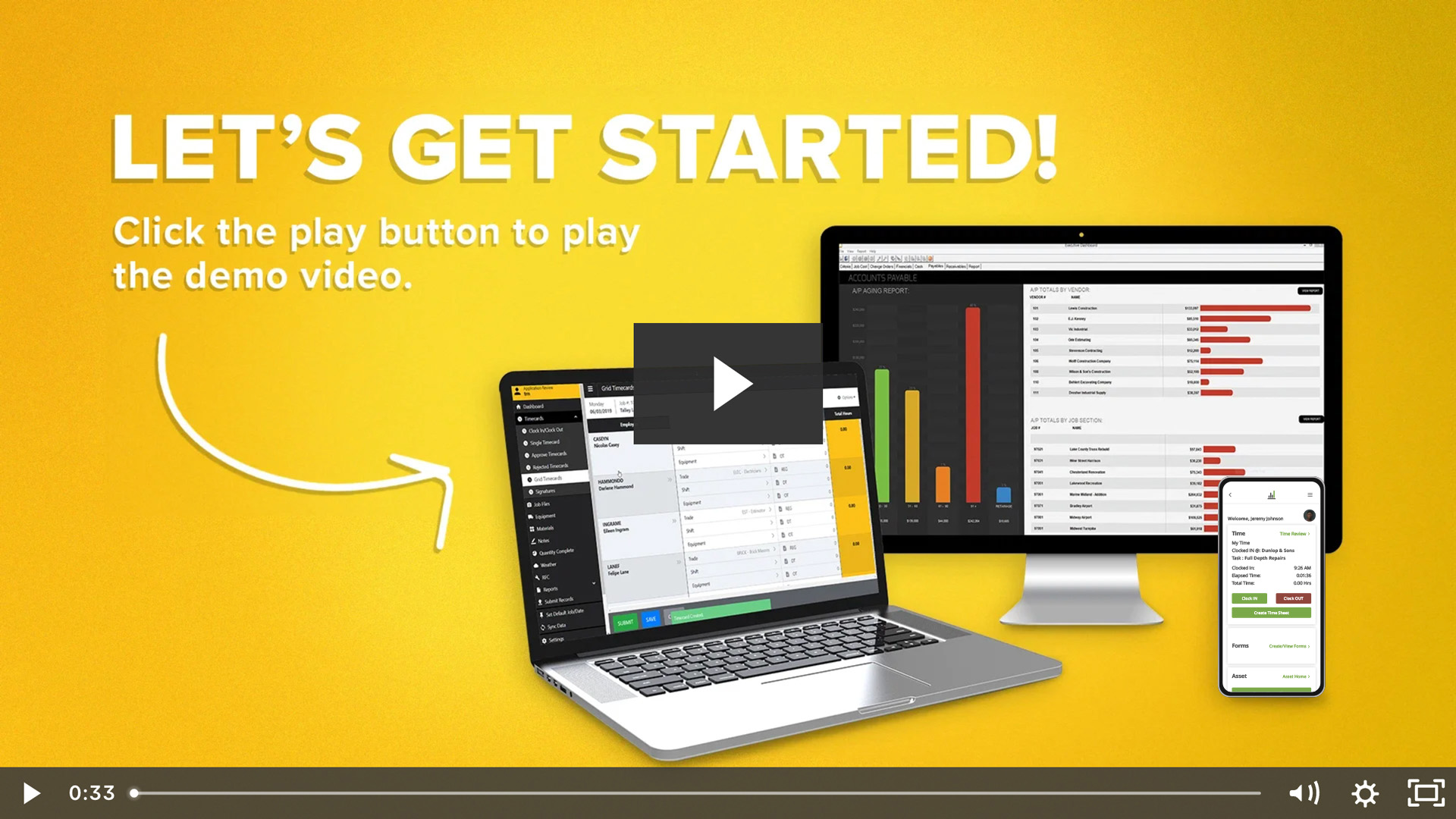
Getting paid for your hard work shouldn’t be a headache. But many contractors struggle with the invoicing process.
Proper construction invoicing requires attention to detail. Contractors need a systematic approach that protects both them and their clients.
Whether you’re a seasoned contractor or starting your career, all contractors need to know about the essential components of an invoice, such as:
- Billing rates
- Labor costs
- Materials
Don’t let invoicing headaches slow you down. Empower yourself with the knowledge and tools to optimize your invoices and keep your construction projects on track.
Related: Learn how to save money with accounts receivable management software.
Construction Invoicing Key Takeaways
- Construction invoicing affects cash flow, protects your business legally and builds strong client relationships.
- Invoices must include company details, project-specific information, itemized cost breakdowns and clear payment terms
- Invoices help with legal protection, audit compliance, project profitability tracking and future cost estimation
- Construction-specific software can improve efficiency, reduce errors and provide better financial visibility across projects
What is Construction Invoicing and Who Are They For?
Construction invoices are documents that builders and contractors use to bill clients for work and materials.
Invoices help track payments and keep records of construction projects. They’re important documents that show project progress and how much it costs.
Construction companies send invoices to clients across many different sectors and industries. Some clients are companies that own multiple buildings and need regular maintenance. Others are government agencies that build public projects like roads and schools.
There are several main types of construction invoices.
- Progress invoices are for big projects that take a long time. Contractors send these at different stages of the project instead of waiting until the end.
- Time and materials invoices show exactly how many hours people worked and what materials they used.
- Fixed-price invoices show one set price for the whole job. These work well for smaller projects where the contractor knows exactly what needs to be done.
Different clients need different kinds of information on their invoices.
Business clients often want very detailed invoices that fit with their accounting systems. They might need separate lines for labor costs and materials.
Government clients have strict rules about invoices. They often need special forms and extra paperwork to show how they are spending public money.
The Importance of Proper Construction Invoicing
Construction invoicing is more than a routine administrative task. It’s a critical business process that impacts your company’s finances and professional reputation.
When done the right way, a well-structured invoicing system:
- Ensures steady cash flow
- Maintains transparent
- Provides essential documentation for accounting and legal purposes
Financial Stability and Cash Flow
Construction projects often involve significant upfront costs. This includes costs for materials, equipment and labor.
Good invoices help maintain consistent cash flow through a clear, itemized list of expenses. Invoices also establish regular payment schedules.
This type of systematic approach enables contractors to meet their financial obligations. Invoices help contractors pay subcontractors or buy materials for upcoming projects.
Professional Documentation
Each invoice serves as a legal document that protects both the contractor and the client. Detailed, accurate invoices create a clear record of:
- Services rendered
- Materials used
- Agreed-upon payment terms
Invoice documents help with payment disputes or for audit purposes. They also help track project profitability and aid in future project estimation.
Client Trust and Relationship Management
Professional invoicing practices demonstrate competence and attention to detail. These are qualities that clients value in construction contractors.
Clear, itemized invoices that align with contract terms and project progress build trust. It also strengthens long-term relationships between contractors and customers.
Transparent invoicing also reduces the likelihood of payment disputes and cost-related misunderstandings.
Compliance and Risk Management
Construction invoicing must follow regulatory requirements and industry standards. Proper invoicing practices help ensure compliance with:
- Tax regulations
- Lien laws
- Contract requirements
Detailed invoices can protect your business from legal complications and financial risks. Meanwhile, they maintain your professional standing in the industry.
The Components of a Construction Invoice

A well-structured construction invoice contains several essential elements. An invoice needs to be clear, professional, and compliant with all laws. This helps contractors maintain accurate records and prompt payment from clients.
The Heading and Branding
Every construction invoice should have a section at the very top for branding. The header should include information about the construction company performing the work, and it typically includes:
- Business address
- Phone number
- Any relevant license numbers
- Any relevant certifications
Consider including the business’s tax identification number. Also include other business registration details mandated for your jurisdiction.
There will also be a section in the invoice for the client’s information (aka the business paying for the work to be done).
State the client’s complete information in a clear way. Include the client’s:
- Business name
- Billing address
- The first and last names of the primary contact person
If the project involves many stakeholders, specify which entity handles payment.
Including client information details prevents invoices from going to the wrong person. It also helps prevent processing delays.
Project-Specific Details
Begin the body of the invoice with project information. Include the project name, location and specific reference numbers.
Make sure to document the billing period covered by the invoice. Also, make sure to include any relevant purchase order numbers provided by the client.
This level of detail helps clients track expenses across many projects. Details also ensure proper allocation of payments.
Detailed Cost Breakdown
The meat of the invoice should present a detailed breakdown of all charges.
Include itemized listings of labor costs. List the hourly rates and total hours worked for different types of work.
Incorporate detailed material costs, including quantities, unit prices and total amounts.
Document equipment rentals, subcontractor fees and any other project-specific expenses.
This transparency helps clients understand exactly what they’re paying for. The detailed lists also reduce the likelihood of payment disputes.
Payment Terms and Options
State your payment terms in a clear way. Include the due date and any early payment discounts or late payment penalties.
Specify accepted payment methods and include necessary banking information for electronic transfers.
Reference relevant contract terms and current completion status if using progressive billing. Also, reference the terms if using payment milestones.
Supporting Documentation
Reference any relevant attachments such as timesheets, material receipts or progress photos.
You might think of including these documents separately. However, mentioning them in the invoice creates a clear link between work performed and charges billed.
This documentation trail proves invaluable for both accounting purposes and potential dispute resolution.
Streamline Invoicing With Construction Accounting Software
Modern construction accounting software offers invoicing capabilities alongside essential financial management tools.
Specialized invoicing software serves a single purpose. In contrast, construction accounting platforms let contractors manage their entire business. This includes different kinds of invoices that are common in the construction industry.
Construction accounting software streamlines the creation and management of industry-specific invoices.
When dealing with lump sum contracts, accounting software can maintain the original contract value while tracking change orders and payments.
Percentage of completion invoicing becomes more accurate as the software can pull real-time cost data to calculate progress against the total contract value.
Invoicing tools available in accounting software provide significant advantages.
Contractors can generate detailed job cost reports that compare invoiced amounts against actual costs. This provides crucial insights into project profitability.
Client communication improves through integrated portal features that provide access to both invoices and supporting financial documentation. These portals allow clients to review:
- Payment applications
- Check payment history
- Access lien waivers
The adoption of construction accounting software represents a strategic investment in financial management capability. These systems provide the tools needed to manage business finances effectively.
By centralizing financial operations in one system, contractors can better monitor project profitability, manage cash flow and make informed business decisions based on accurate financial data.
Create Construction Invoices With FOUNDATION®
Effective construction invoicing is the cornerstone of a successful construction business. Invoices impact everything from cash flow to client relationships.
Proper invoicing requires meticulous attention to detail in documenting:
- Company information
- Project specifics
- Costs
- Payment terms
Managing the invoicing process manually can be overwhelming. Modern construction invoicing software and accounting systems offer a solution for contractors looking to improve their financial processes.
Construction-specific accounting software like FOUNDATION addresses all accounting challenges, including invoicing. Accounting software with invoicing features can help contractors create professional, detailed invoices compliant with industry standards.
Ready to transform your construction invoicing process? Chat with a specialist to learn more!
Share Article
Keep on current news in the construction industry. Subscribe to free eNews!
Our Top 3 YouTube Videos
Learn about our software more in depth with product overviews, demos, and much more!

Our ACA reporting & e-filing services include official 1094-C and 1095-C IRS reporting, optional e-filing (no applying for a TCC code required), mailing to your employees and experienced support to help you.

There are plenty of reasons to make FOUNDATION your choice for job cost accounting and construction management software — just ask our clients!

From job cost accounting software, to construction-specific payroll. Get an overview on your next all-in-one back-office solution.



